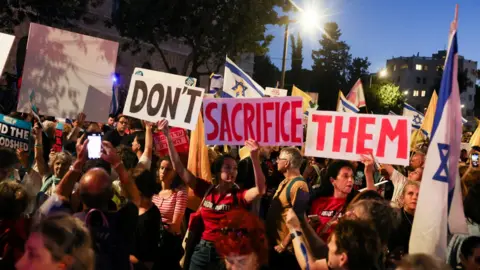In excerpts from recent events in Mexico City, the rich tapestry of community discontent unfolded as residents took to the streets to voice their opposition to the growing presence of foreign remote workers. With banners declaring “Gringo, go home!” and “Gentrification is colonization!”, crowds gathered last Friday to confront what they see as an unsettling transformation in their neighborhoods.
The protest drew immediate attention, prompting a response from President Claudia Sheinbaum, who condemned the vandalism of co-working spaces. However, she also recognized the underlying issues, noting that rising rents and increased cost of living are real concerns for many residents. “The playing field is not level,” said protester Daniela Grave, who highlighted the economic divide between locals and foreigners living in the city.
Since the onset of the COVID-19 pandemic, a significant number of U.S. remote workers have relocated to Mexico City, particularly to vibrant areas like Condesa and Roma. This shift has led to changes in local culture and economy, with more establishments catering to expatriates. As English dominates in numerous cafes and local businesses, longtime residents feel a growing disconnection from their own neighborhoods.
As protests continue, the spotlight is on the need for more significant discussions around housing policies and equitable regulations that address both the desires of foreign residents and the needs of local populations. The overall climate suggests that until a solution is reached, local frustrations are likely to only intensify.
The protest drew immediate attention, prompting a response from President Claudia Sheinbaum, who condemned the vandalism of co-working spaces. However, she also recognized the underlying issues, noting that rising rents and increased cost of living are real concerns for many residents. “The playing field is not level,” said protester Daniela Grave, who highlighted the economic divide between locals and foreigners living in the city.
Since the onset of the COVID-19 pandemic, a significant number of U.S. remote workers have relocated to Mexico City, particularly to vibrant areas like Condesa and Roma. This shift has led to changes in local culture and economy, with more establishments catering to expatriates. As English dominates in numerous cafes and local businesses, longtime residents feel a growing disconnection from their own neighborhoods.
As protests continue, the spotlight is on the need for more significant discussions around housing policies and equitable regulations that address both the desires of foreign residents and the needs of local populations. The overall climate suggests that until a solution is reached, local frustrations are likely to only intensify.





















